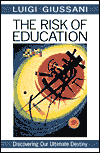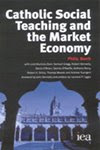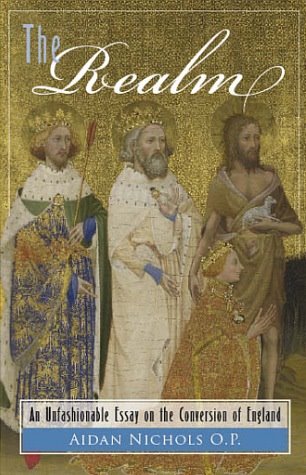John Roskam of the Institute of Public Affairs has an excellent op-ed piece in the Age newspaper today, entitled "Politicians find religion a cross to bear". I have met John, and he is a thoughtful chap. His topic is the role of religion in politics, and the current effort to de-legitimise the opinions and political involvement of Christians and other believers. He singles out the verbal rough-housing of Tony Abbott over the last few years (fortunately, Tony is a pretty tough character), and highlights Tony Blair’s recent revelation that his Christian beliefs had to be concealed during his political career.
Roskam’s article references a major debate in modern political philosophy. On one hand, defenders of liberalism claim that liberal democracy, unlike other forms of government, is neutral towards different ideas about the best form of life, treating all equally. They claim that its emphasis on autonomy leaves individuals free to pursue the good as they see fit, and does not impose any single conception of the good. Indeed, it forbids such imposition, and it is on this ground that religiously-based arguments are ruled illegitimate. Only purely secular, “reasonable” arguments should be heard. This view is closely associated with the 20th century philosopher John Rawls.
Liberalism’s growing band of critics argue that its claim of neutrality is bogus. They point out that liberalism’s emphasis on autonomy contains a hidden idea about the best kind of life: the autonomous life, free of the encumbrance of relationship or commitment. This is coupled with a narrow concept of “scientific” reason that de-legitimises other forms of knowing, particularly revelation.
As David L. Schindler points out, the identification of freedom with choice (and we could add, reason with science) so ingrained that we almost automatically assume these definitions. This is particularly true in English-speaking countries. But there are other, wider ideas of freedom and reason that liberalism discounts.
I think that the critics are right. I don’t accept the liberal claim that politics can be separated from moral and metaphysical claims. What we believe about human nature and truth will matter to our political ideas.
This debate is not just theoretical. In Britain, the Parliament has already taken steps against funding of Catholic adoption agencies, effectively shutting them down, and is threatening to take further steps against Catholic schools, on the grounds that these institutions embody non-neutral "doctrinaire" beliefs. But their pretence of neutrality is false. They have their own beliefs that they wish to impose, and they control a machinery of state that is so pervasive that few can resist its power.
Those who argue that religious voices shouldn’t be heard in the public square are pulling a fast one. They ask us to accept up front that our own views are not politically acceptable. But at the same time they expect us to allow them to impose their own concept of good and right.
This deceptiveness often masks the robust anti-Catholicism that is never far from the surface of the liberal English-speaking world. We shouldn’t be too worried by this, partly because the disease seems less common in Australia than in Britain, but mainly because Jesus told us not to worry: “I have conquered the world”. At the same time, we should not be naïve. There are plenty of people in our political system who do not regard us as legitimate. We must employ all wits to deal with them, and retain our place in the political process.




